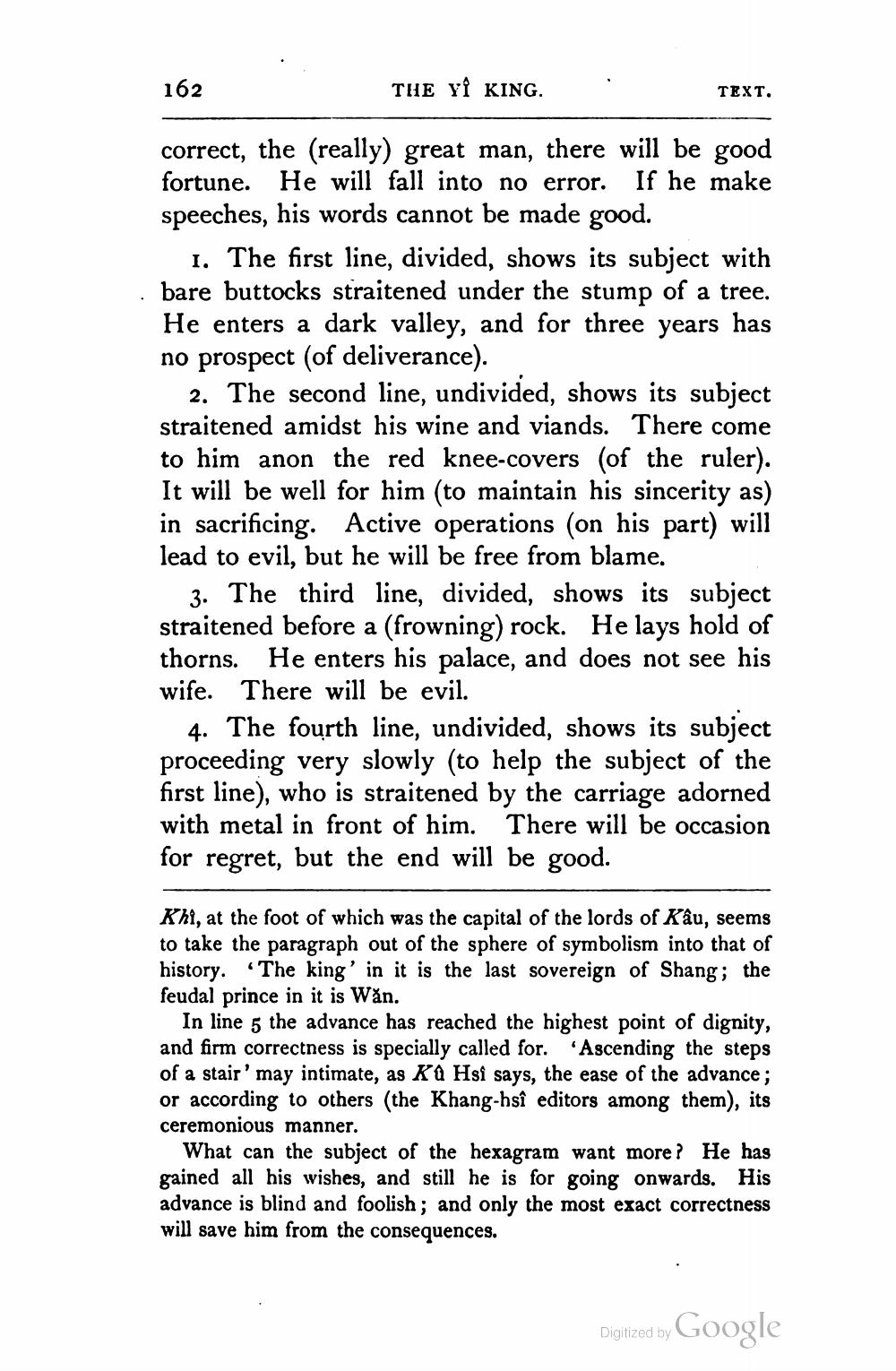________________
162
THE YI KING.
TEXT.
correct, the (really) great man, there will be good fortune. He will fall into no error. If he make speeches, his words cannot be made good.
1. The first line, divided, shows its subject with bare buttocks straitened under the stump of a tree. He enters a dark valley, and for three years has no prospect (of deliverance).
2. The second line, undivided, shows its subject straitened amidst his wine and viands. There come to him anon the red knee-covers (of the ruler). It will be well for him (to maintain his sincerity as) in sacrificing. Active operations (on his part) will lead to evil, but he will be free from blame.
3. The third line, divided, shows its subject straitened before a (frowning) rock. He lays hold of thorns. He enters his palace, and does not see his wife. There will be evil.
4. The fourth line, undivided, shows its subject proceeding very slowly (to help the subject of the first line), who is straitened by the carriage adorned with metal in front of him. There will be occasion for regret, but the end will be good.
Khi, at the foot of which was the capital of the lords of Kâu, seems to take the paragraph out of the sphere of symbolism into that of history. The king' in it is the last sovereign of Shang; the feudal prince in it is Wăn.
In line 5 the advance has reached the highest point of dignity, and firm correctness is specially called for. 'Ascending the steps of a stair' may intimate, as Ku Hsi says, the ease of the advance; or according to others (the Khang-hsî editors among them), its ceremonious manner.
What can the subject of the hexagram want more? He has gained all his wishes, and still he is for going onwards. His advance is blind and foolish; and only the most exact correctness will save him from the consequences.
Digitized by Google




